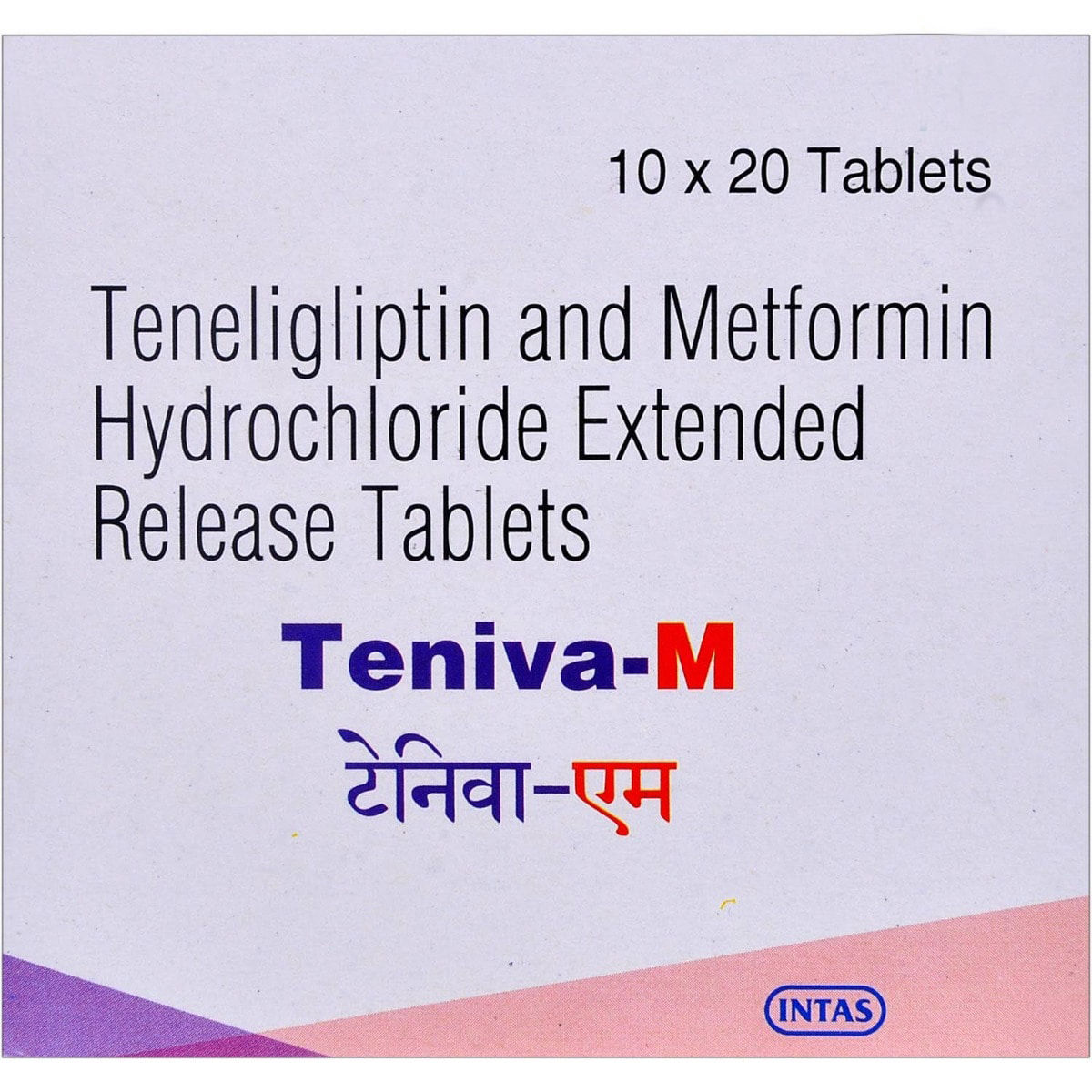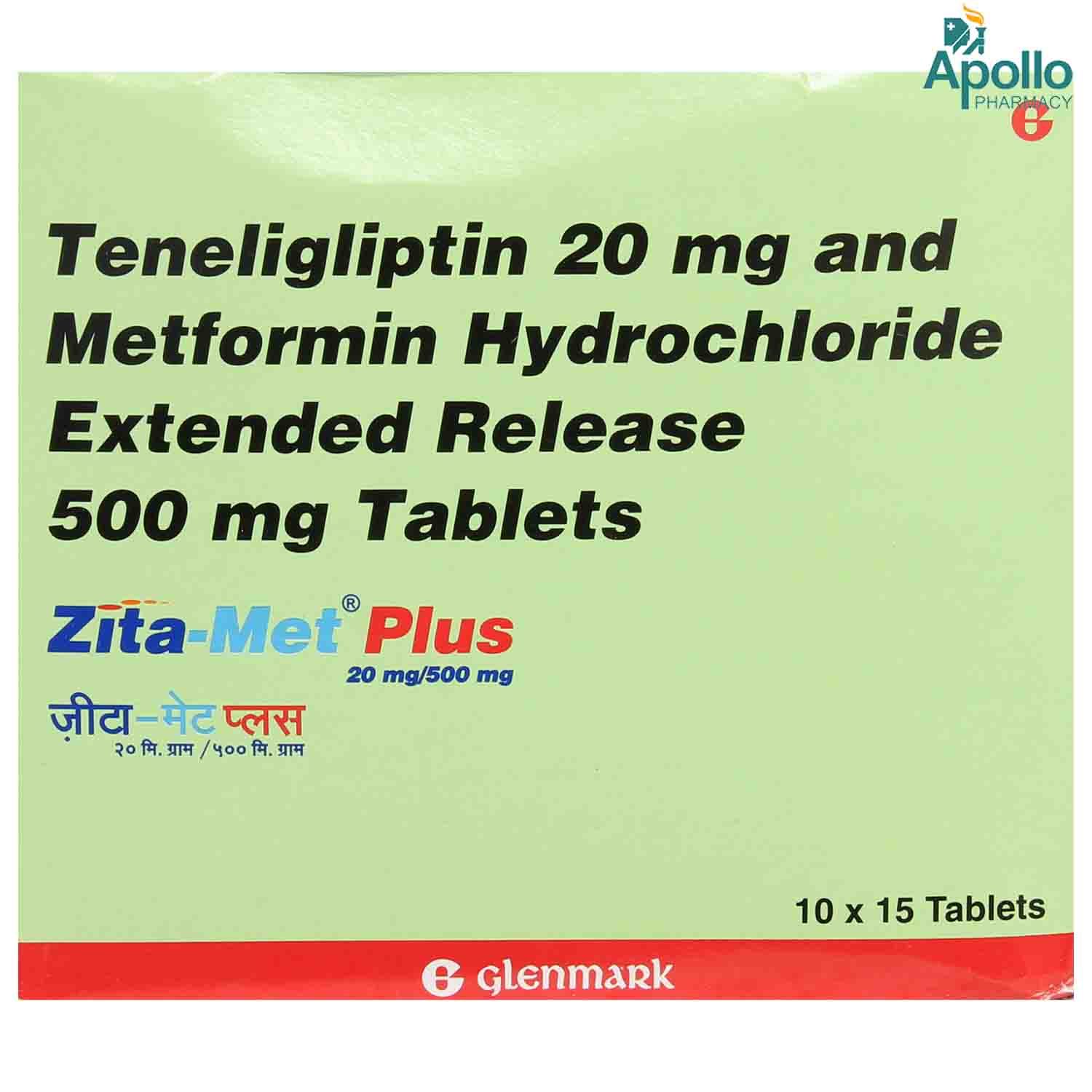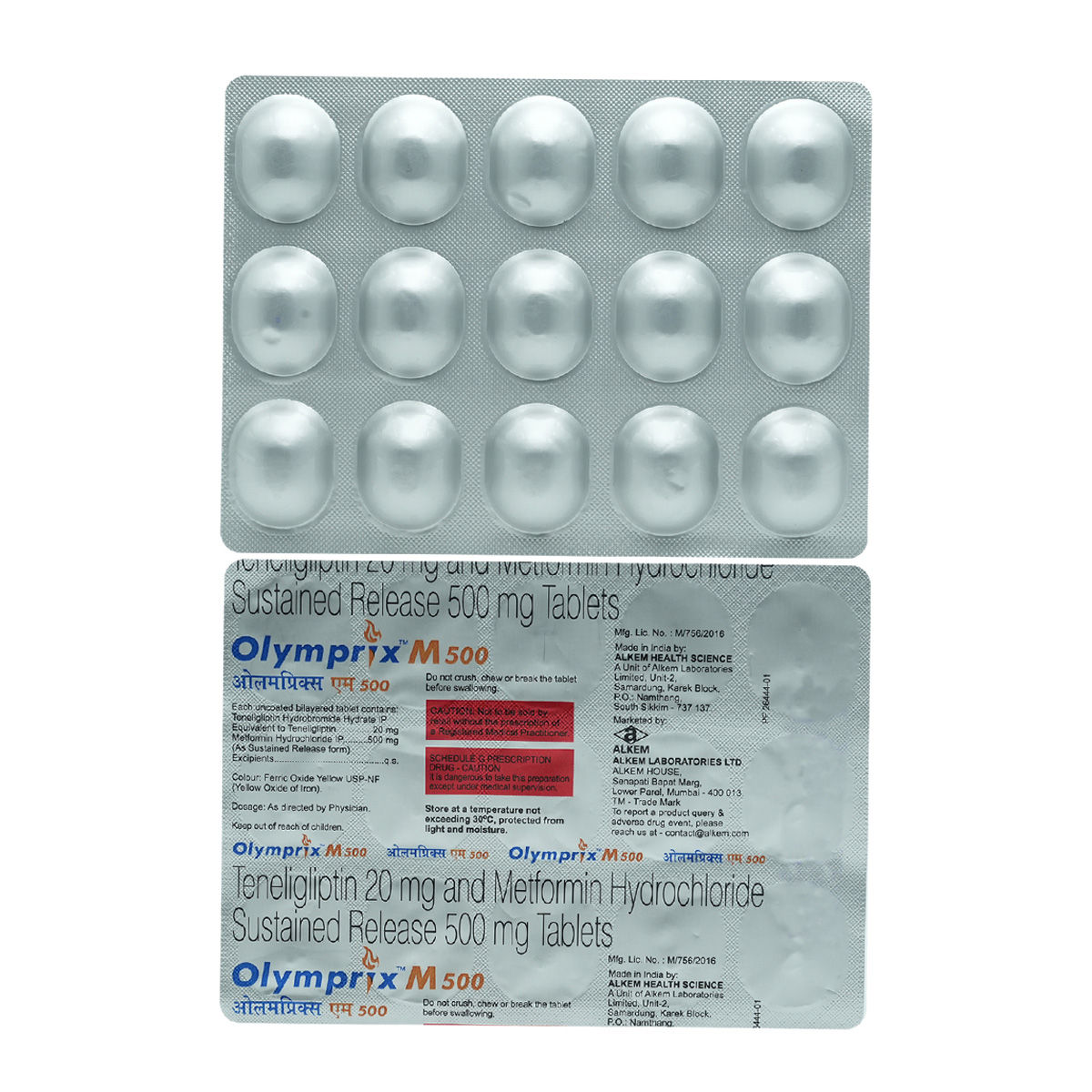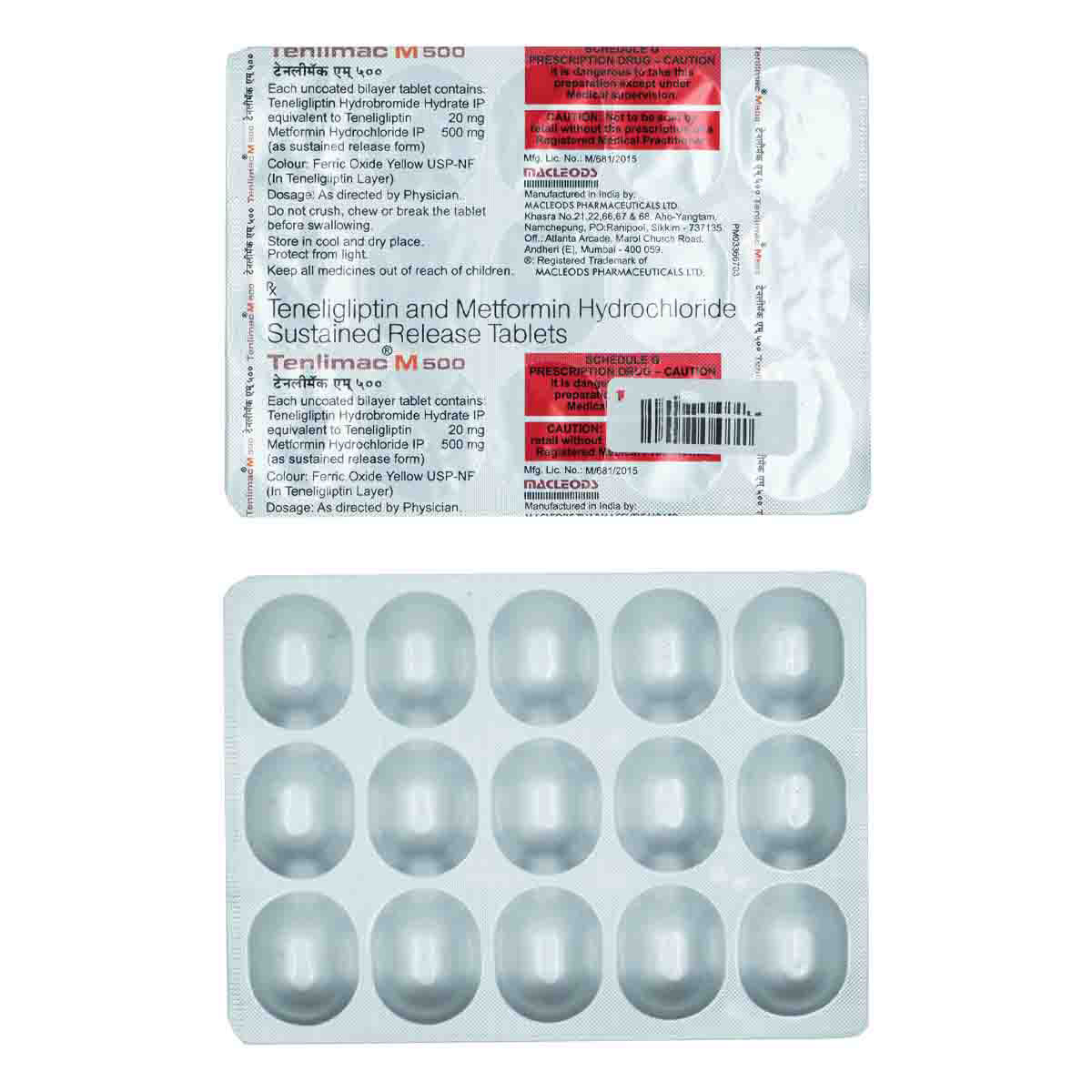Tiban M 20 mg/500 mg Tablet 15's
₹268.7*
MRP ₹298.5
10% off
₹253.72*
MRP ₹298.5
15% CB
₹44.78 cashback(15%)
Free Delivery
With Circle membership
(Inclusive of all Taxes)
This offer price is valid on orders above ₹800. Apply coupon PHARMA10/PHARMA18 (excluding restricted items)
Know Your Delivery Time
Provide Delivery Location




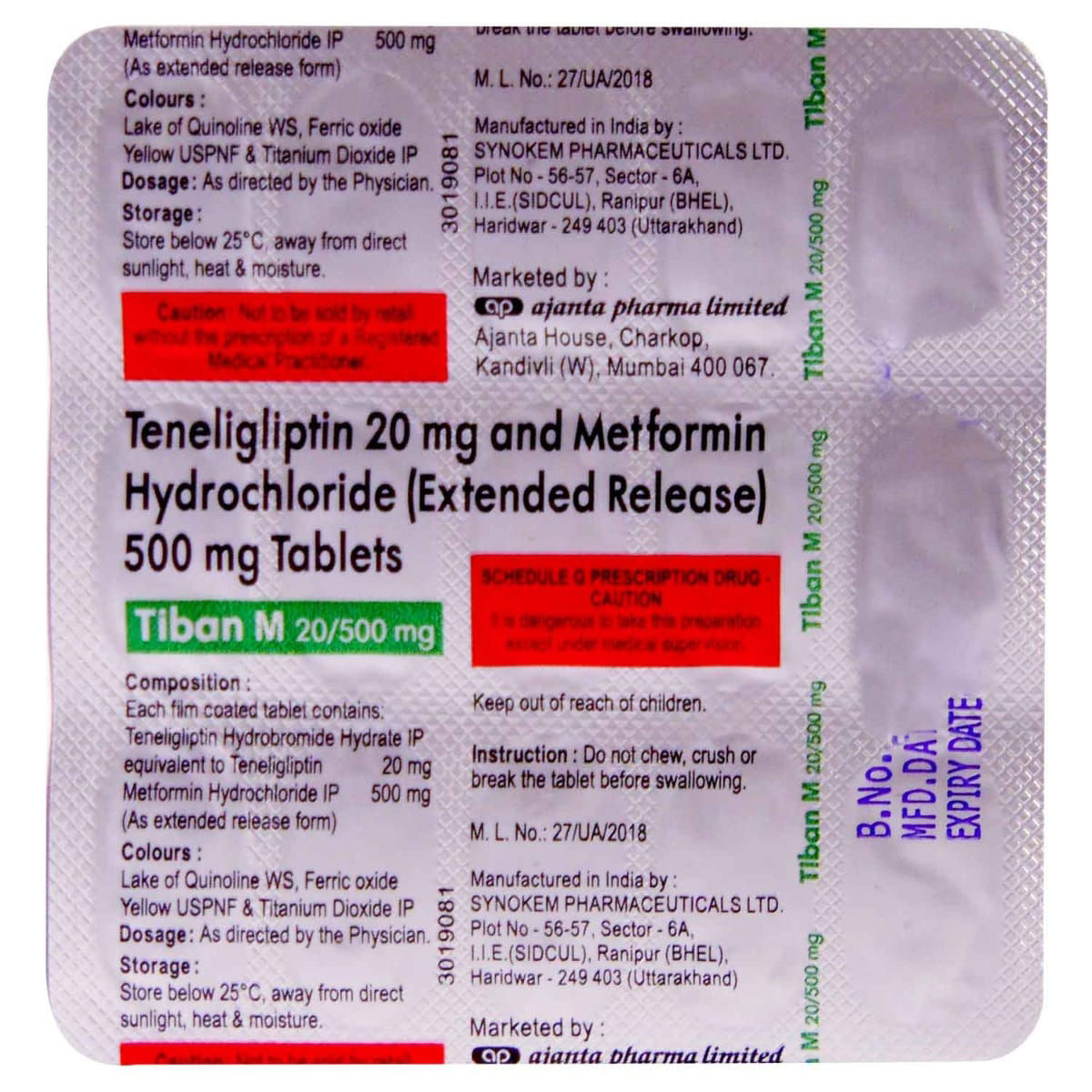
Selected Pack Size:15
10 ₹149.9
(₹14.99 per unit)
In Stock
15 ₹268.7
(₹17.91 per unit)
In Stock
Whats That

Secure Payment

India's Most Trusted Pharmacy

Genuine Products
Composition :
Manufacturer/Marketer :
Consume Type :
Return Policy :
Expires on or after :
About Tiban M 20/500 mg Tablet
Tiban M 20/500 mg Tablet belongs to the group of medications called ‘antidiabetic agents’ used to treat Type 2 diabetes mellitus. This medication improves glycaemic control in diabetic patients who do not react well to Metformin alone. Type 2 diabetes mellitus is a chronic or life-long condition in which blood sugar or glucose levels rise more than normal. It occurs when the body does not produce enough insulin (metabolizes glucose), or if produced, it cannot function properly in the body.
Tiban M 20/500 mg Tablet is a combination of two medicines, namely: Metformin and Teneligliptin. Metformin comes into the category of medications known as 'biguanides', and it acts by decreasing liver glucose production and intestinal glucose uptake. On the other side, Teneligliptin works by stopping the action of the dipeptidyl Peptidase 4 enzyme, which in turn increases the insulin levels in the body and reduces the glucagon levels. All of these actions reduce sugar levels in the body.
You should take this medicine as prescribed by your doctor. You may experience side-effects of such as nausea (feeling sick), vomiting (falling sick), diarrhoea, headache, stomach ache, respiratory infection, weight gain, sweating, palpitations, and vision problems. Some patients experience decline in blood sugar levels lower than normal (hypoglycemia), resulting in sweating, dizziness, headache, confusion, feeling hungry, temporary changes in vision, uneasiness, irritability, and weakness. In such cases, seek medical attention immediately.
Do not take Tiban M 20/500 mg Tablet if you are allergic to any of its contents. Do not use this medicine if you have heart failure, bladder cancer, or diabetic ketoacidosis (a complication of diabetes). Tiban M 20/500 mg Tablet may cause ‘lactic acidosis’ (accumulation of lactic acid in the blood), which requires immediate medical attention. The risk increases if you are previously diagnosed with kidney or liver diseases. Do not consume alcohol (risk of lactic acidosis) or fast for prolonged periods (risk of hypoglycemia). Also, inform your doctor if you are pregnant, planning to become pregnant, or breastfeeding.
Uses of Tiban M 20/500 mg Tablet
Medicinal Benefits
Tiban M 20/500 mg Tablet is suggested for the management of type 2 diabetes to be followed with the right diet and exercise. Tiban M 20/500 mg Tablet is given in combination in patients whose diabetes is not effectively controlled with Metformin alone. This medicine makes the body more responsive to insulin and helps the body to a normal state. Metformin tablets are especially advised to release the drug at a slow rate in the body from time to time.
Side Effects of Tiban M 20/500 mg Tablet
Nausea (feeling sick)
Vomiting (falling sick)
Diarrhea
Headache
Stomach ache
Respiratory infection
Weight gain
Sweating
Palpitations
Numbness
Vision problems
Directions for Use
Storage
Drug Warnings
Tiban M 20/500 mg Tablet should be used with caution in patients with heart diseases as it increases the risk of heart failure. Tiban M 20/500 mg Tablet may cause ‘lactic acidosis’ (buildup of lactic acid in the blood), characterized by abdominal pain, muscle cramps, vomiting, severe fatigue, and difficulty breathing. It is a life-threatening condition that requires immediate medical attention. Inform your doctor if you have any severe liver or kidney problems as their normal functioning is required to eliminate excess lactic acid from the body. Do not consume excess alcohol as it increases the risk of lactic acidosis. Tiban M 20/500 mg Tablet may lower vitamin B12 levels, so it is recommended to take blood tests regularly to identify any vitamin deficiencies.
Therapeutic Class
Drug-Drug Interactions
Drug-Food Interactions
Diet & Lifestyle Advise
Fill your half plate with starchy veggies, a quarter with proteins, and a quarter with whole grain.
Eat at regular intervals. Do not take the long gap between a meal or snack.
Monitor your blood sugar level regularly, especially when there are a lot of fluctuations.
Invest at least 150 min of moderate-intensity physical activity and 15 minutes of high-intensity exercise every week.
Lose weight gradually to achieve a healthy body mass index (18.5 to 24.9).
Replace refined carbohydrates-containing foods with whole grain foods and increase fruits and veggies and other fiber-enriched foods.
Reduce saturated fat intake (or hidden fats) in food like chips, crisps, pastries, biscuits, and samosas. Choose omega 3 fatty acid-containing oils for daily cooking. You may use palm oil, mustard oil, groundnut oil, rice bran oil, and safflower oil for frying.
Do not take stress as it may elevate your blood sugar level. You may adopt stress management techniques like mindfulness, yoga, or meditation to control stress-related blood sugar changes.
Opt for low-fat dairy products (low-fat yogurt, fat-free milk, and cheese, etc.).
Keep your blood pressure as normal (120/80) as possible as it reduces the risk of heart diseases in diabetes patients.
Habit Forming
How Tiban M 20/500 mg Tablet Works
What if I have taken an overdose of Tiban M 20/500 mg Tablet
Alcohol
Caution
Alcohol may increase the risk of side-effects and worsen the condition.
Pregnancy
Caution
Tiban M 20/500 mg Tablet is a category C drug and may cause harmful effects to the unborn baby. So, it is used only when the benefits of this medicine outweigh the risks.
Breast Feeding
Caution
Tiban M 20/500 mg Tablet should not be used in breastfeeding mothers as it may get secreted in the breast milk and cause unwanted effects in the nursing babies.
Driving
Caution
Tiban M 20/500 mg Tablet may cause vision problems. So, do not drive or operate heavy machinery if you have any problems with your vision while using Tiban M 20/500 mg Tablet .
Liver
Caution
Tiban M 20/500 mg Tablet should be taken with caution in patients with liver diseases. The dose may have to be adjusted by your doctor.
Kidney
Caution
Tiban M 20/500 mg Tablet should be taken with caution, especially if you have a history of kidney diseases. The dose may have to be adjusted by your doctor.
Children
Caution
Tiban M 20/500 mg Tablet is not recommended for use in children below 18 years of age.
Country of origin
Manufacturer/Marketer address
Author Details
We provide you with authentic, trustworthy and relevant information
Tiban M 20/500 mg Tablet Substitute

Tenelichoice-M 500 Tablet 10's
₹14.90per tabletTeniva-M Tablet 20's
by AYUR
₹18.90per tabletDynaglipt-M Tablet 10's
by AYUR
₹11.84per tabletZita Met Plus 20/500 Tablet 15's
₹17.28per tabletTendia M Tablet 15's
by AYUR
₹15.60per tablet
FAQs
Disclaimer
Customers Also Bought
Product Substitutes
Recommended for a 30-day course: 2 Strips











